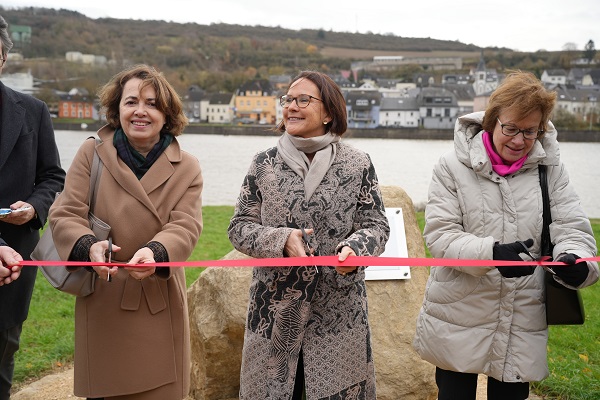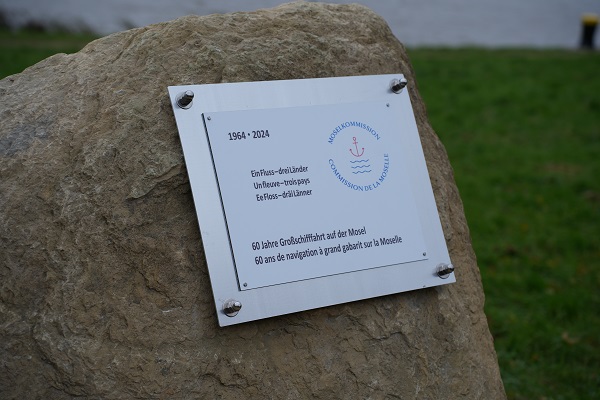 (L-R) Claire Lignières-Counathe, French Ambassador to Luxembourg; Yuriko Backes, Luxembourg's Minister for Mobility and Public Works; Dr Heike Peitsch, German Ambassador to Luxembourg;
Credit: MMTP
(L-R) Claire Lignières-Counathe, French Ambassador to Luxembourg; Yuriko Backes, Luxembourg's Minister for Mobility and Public Works; Dr Heike Peitsch, German Ambassador to Luxembourg;
Credit: MMTP
On Wednesday 27 November 2024, Luxembourg's Minister for Mobility and Public Works, Yuriko Backes, accompanied by the German Ambassador to Luxembourg, Dr Heike Peitsch, and the French Ambassador to Luxembourg, Claire Lignières-Counathe, as well as representatives of the Moselle Commission, celebrated the 60th anniversary of wide-gauge navigation on the International Moselle in Grevenmacher.
As reported by Luxembourg's Ministry of Mobility and Public Works, a commemorative plaque was unveiled and three maple root balls were planted to commemorate this anniversary and symbolise the importance of this cross-border cooperation.
In 1956, Luxembourg, Germany and France signed the Moselle Convention in order to develop the Moselle and make it accessible to wide-gauge navigation.
The official inauguration of the wide-gauge development of the Moselle took place on 26 May 1964, in the presence of the heads of state of the time, namely French President Charles de Gaulle, German Federal President Dr Heinrich Lübke and Grand Duchess Charlotte of Luxembourg.
This project has since become a true post-war symbol, noted the ministry, uniting the three countries thanks to a transport infrastructure promoting their economic development.
Today, the Moselle is considered an essential corridor for European traffic. In 2023, nearly seven million tonnes of goods were transported by around 4,500 freight ships, an equivalent number of passenger ships and about 1,500 cabin ships.
With five ports and numerous transhipment platforms, the Moselle allows the loading and unloading of various products: agricultural products, construction materials, fertilisers, metallurgical products, containers, large-gauge goods, etc. The ministry added that the modernised river ports have been transformed into multipurpose export and import platforms, connected to the rail network, and they actively contribute to the development of more sustainable goods transport.
"The Moselle is much more than just a natural border, it is a real link between our populations and our economies. For 60 years, the canalised Moselle has been a symbol of cross-border cooperation, which fuels our common prosperity," stated Minister Backes. "The future of our region is based on shared commitments and collective responsibility to preserve strong ties, to meet the challenges of tomorrow together, in particular by reducing the carbon footprint also thanks to river transport."

(Photo credit: MMTP)








